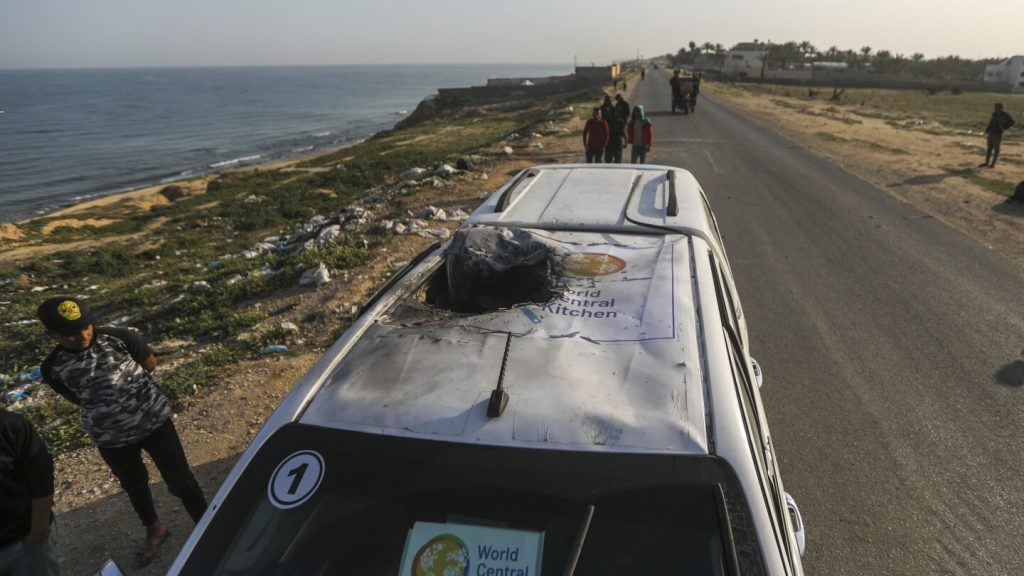In the Gaza Strip, a tragic incident occurred where seven aid workers from the World Central Kitchen were killed by an Israeli airstrike. The workers were part of a massive food shipment convoy that was delivering essential supplies to the war-ravaged region. This effort was crucial in trying to prevent famine among the millions of people cut off from regular food deliveries due to the ongoing conflict. The situation in Gaza had become increasingly dire, with hunger widespread and the threat of famine looming over the area.
The World Central Kitchen had pioneered an initiative to deliver aid by sea due to limited access through Gaza’s land crossings with Israel and Egypt. The relief group, founded by celebrity chef José Andrés, had previously worked in various conflict zones and disaster areas to provide meals on a mass scale. The aid workers had established a plan with Israeli forces to ensure safe passage for their convoy, but things took a tragic turn on the night of April 1. Israeli forces mistakenly targeted the convoy, leading to the deaths of all seven aid workers.
The aftermath of the attack saw Israel admitting to its mistake and launching an investigation into the incident. Two officers were dismissed, and three others were reprimanded for mishandling critical information and violating the army’s rules of engagement. The tragedy sparked international outrage, with over 200 aid workers killed in Gaza since the war began. Some aid organizations suspended operations in Gaza, while others, like Doctors Without Borders and Oxfam International, continued their work despite the risks.
The aid workers killed in the convoy strike came from various backgrounds and motivations, but they all understood the risks of operating in a conflict zone like Gaza. The convoy attack highlighted the dangers faced by humanitarian workers in such volatile environments. Despite the tragedy, many aid organizations remained committed to their mission of providing essential assistance to those in need. The incident raised questions about the effectiveness of coordination systems between aid groups and military forces to ensure the safety of humanitarian workers in conflict zones.


